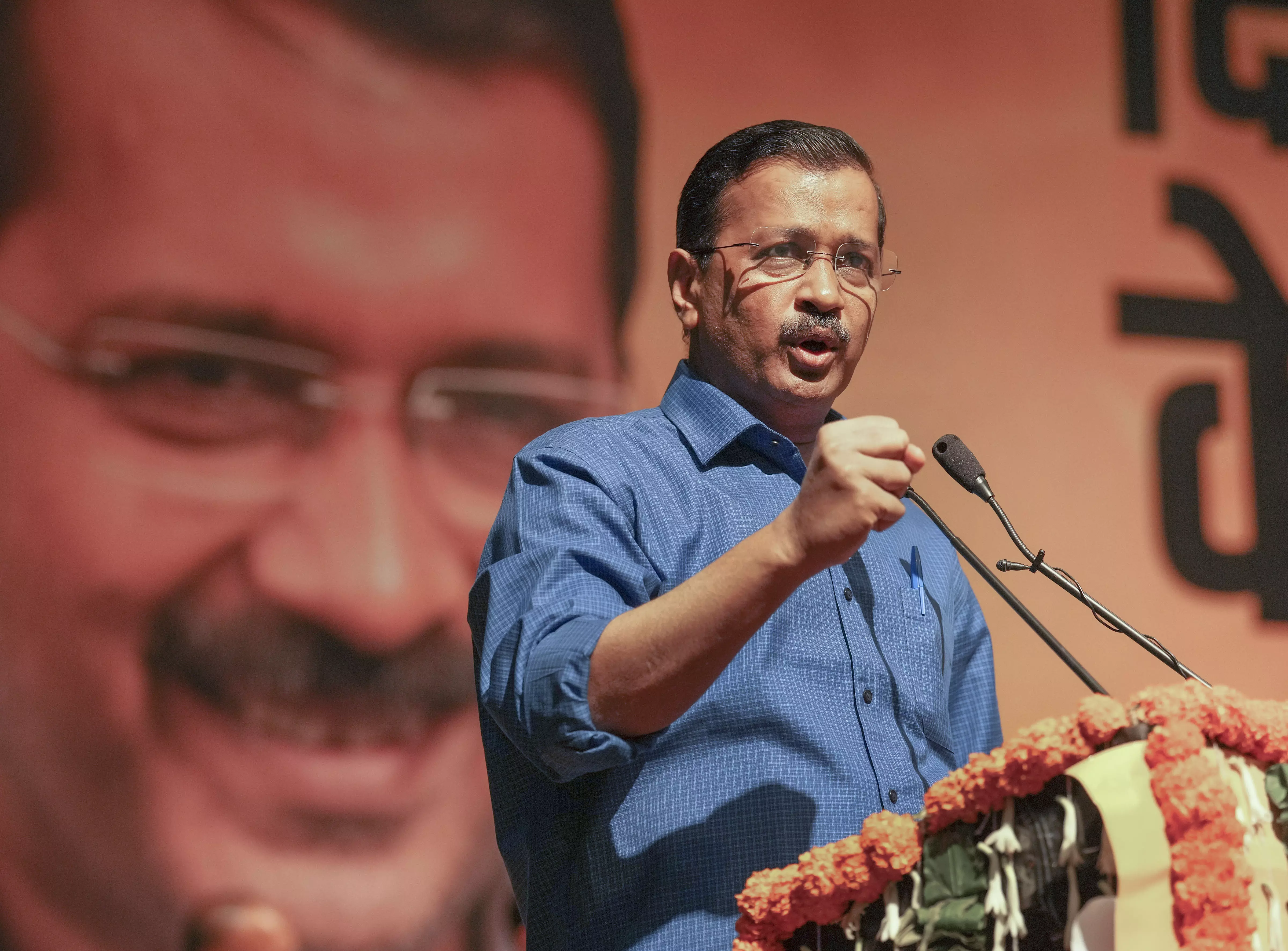
Kejriwal not a habitual offender, says SC during hearing; no bail today
The top court said it would consider bail for the AAP leader to allow him to campaign for his party in the ongoing Lok Sabha election since it is an 'extraordinary situation'

Arvind Kejriwal is "not a habitual offender", the Supreme Court said on Tuesday (May 7) hearing the arguments for interim bail for the Delhi Chief Minister, who was arrested on money laundering charges linked to the now-defunct liquor excise policy.
Meanwhile, no interim order has been issued yet on Delhi CM Kejriwal's bail for now in the excise policy ED case. The matter is likely to be heard later, the Supreme Court (SC) hasn't set a date yet.
The top court - which is actually hearing the larger matter of Kejriwal's plea against his arrest - had earlier said it would consider bail for the AAP leader to allow him to campaign for his party in the ongoing Lok Sabha election.
Delhi, which has seven Lok Sabha seats, votes in a single phase on May 25.
The bench has divided the hearing on Kejriwal’s petition against his arrest into two parts. His main petition challenges his arrest by the ED and seeks it to be declared as illegal, while the second aspect pertains to grant of interim bail keeping in mind the ongoing Lok Sabha polls. The court has reserved the order on the issue of grant of interim bail. Before rising for the day, the bench indicated that tomorrow the judges will be sitting in different combinations, and if the hearing on matters listed for Wednesday gets completed and the judges have time in hand, they would resume hearing Kejriwal’s plea against his arrest by the ED.
"If not tomorrow, then we may take up the matter on Thursday. If not on Thursday, then we will be taking up this matter next week," said Justice Khanna, without specifying any time frame for pronouncement of verdict on the issue of interim bail.
Meanwhile, a Delhi court extended Kejriwal's judicial custody in the money laundering case till May 20.
Extraordinary situation
A two-judge bench of Justices Sanjiv Khanna and Dipankar Datta said that this is an “extraordinary situation” and not that Kejriwal is a habitual offender.
"He is the CM of Delhi and an elected leader. Elections are going on. This is an extraordinary situation. It is not like he is some kind of a habitual offender. We will consider hearing arguments on whether he should be released on interim bail," the court said.
"We need to consider on priority whether he should be released in the interim," the bench said, adding that he is the sitting CM of Delhi and needs to campaign for the Lok Sabha elections.
No official duties
However, the top court told senior advocate Abhishek Singhvi, appearing for the CM, that it doesn't want Kejriwal to perform official duties if he is granted interim bail.
SC pointed that suppose they grant interim bail on account of elections, then if Kejriwal attended office it may have "cascading effect".
"If you perform official duties, then it will be conflict of interest and we don't want that," the bench said. Abhishek Singhvi, appearing for Kejriwal, assured the bench that the Delhi CM will not deal with any excise policy scam related files, if granted interim bail in the case.
ED opposes bail
Meanwhile, the ED opposed the top court's view on hearing interim bail plea for Kejriwal and said the court would set a 'wrong precedent'.
"There are around 5,000 cases involving MPs pending across the country at this time. Will all of them be released on bail? Is an agriculturist who has a harvesting and sowing season less important than a politician?" solicitor general Tushar Mehta submitted.
He also said that Kejriwal would not have been arrested had he cooperated in investigation and evaded nine summons. Further, he said that a narrative is being built successfully that Kejriwal has not done anything but was arrested just before polls.
"A politician has no special rights as compared to normal citizens. Should all MPs and MLAs facing prosecution be released on bail?" it asked.
ED questioned over delay
In the course of the hearing, the SC also questioned the Enforcement Directorate (ED) over the “delay” in the agency's probe on the Aam Aadmi party supremo. They asked why it took them two years to act against Kejriwal.
It also asked the agency why certain relevant questions were not put before witnesses and accused in the Delhi liquor policy case.
Additional solicitor general S V Raju, appearing for the ED, said in his reply that Arvind Kejriwal was not the prime focus of the investigation. However, he said, his role became clearer as the probe progressed.
"When we began the investigation, our investigation was not directly against him (Kejriwal). His role came up during the investigation. That's why, in the beginning, not a single question was put regarding him. The investigation was not focused on him," SV Raju said.
Moreover, giving the example of the late leader George Fernandes, SC said he contested from jail but still won with a big margin.

